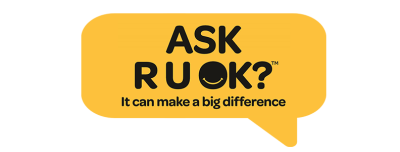R U OK? A Conversation Could Save a Life

In a world where we often find ourselves wrapped up in our fast-paced lives, it's easy to overlook the struggles that others may be facing. Mental health issues affect millions of people globally, yet the stigma surrounding them often makes it difficult for people to open up and seek help. This is where initiatives like R U OK? Day is a powerful reminder of the significance of human connection and conversation in promoting mental well-being. In this blog post, we'll explore the importance of R U OK? Day and how it encourages us all to ask a simple but powerful question: "Are you okay?"
Understanding R U OK? Day
R U OK? Day is an annual event observed in Australia, to raise awareness about mental health and suicide prevention. It takes place on the second Thursday of September each year, primarily inspiring people to start meaningful conversations with those around them. The central message of R U OK? Day revolves around the idea that a simple question can make a profound difference in someone's life.
The Power of a Single Question
The core concept behind R U OK? Day is that asking someone if they are okay can be the first step towards helping them. Sometimes, all it takes to provide support to someone struggling with their mental health is to let them know that you care and are willing to listen. It's a small gesture that can have a tremendous impact.
Here are a few reasons why asking "R U OK?" matters:
- Breaking the Stigma: Mental health stigma often prevents people from seeking help. When we ask if someone is okay, we contribute to breaking down this barrier by showing that it's okay to talk about our emotions and struggles.
- Building Connections: Meaningful connections with others are essential for our mental well-being. Asking someone if they are okay fosters a sense of belonging and support, reminding them that they are not alone.
- Early Intervention: Sometimes, individuals may not even be fully aware of the extent of their struggles until someone asks them about it. Starting a conversation can help identify problems early and prevent them from escalating.
- Providing a Lifeline: For some individuals, the simple act of someone asking if they are okay can be a lifeline. It may be the catalyst for seeking professional help or opening up about their feelings to friends and family.
How to Start the Conversation
Starting a conversation about someone's mental health can be intimidating, but it doesn't have to be. Here are some tips for approaching the topic with sensitivity:
- Choose the Right Time and Place: Find a quiet, private, and comfortable setting to talk where both you and the other person can focus.
- Be a Good Listener: Give your full attention, and don't rush the conversation. Let the other person speak at their own pace.
- Ask Open-Ended Questions: Instead of simply asking, "Are you okay?" try open-ended questions like, "How are you feeling lately?" or "What's been on your mind?"
- Show Empathy: Express empathy and understanding. Let them know that you care about their well-being.
- Offer Support: Ask how you can support them if they open up. Encourage them to seek professional help if necessary.
R U OK? Day reminds us that we all have the power to make a difference in someone's life by simply asking a question and offering support. It serves as a crucial annual reminder that mental health is essential to our overall well-being, and our willingness to engage in meaningful conversations can save lives.
This R U OK? Day, let's commit to asking not only our friends and family but also our colleagues, neighbours, and acquaintances if they are okay. By doing so, we contribute to creating a more compassionate and mentally healthy society, one conversation at a time. Remember, a single question can be the first step towards healing and hope.
Want to know more?
Download our fact sheet on how to start a conversation.
For more information and resources for family and friends, or to join a group chat with other parents, visit eheadspace or call 1800 650 890.
Other helpful services
- Parent helplines are available in every Australian State and Territory of Australia. Google ‘Parentline’ along with your State or Territory to find a service.
- Relationships’ Australia: 1800 364 277
- Family Relationships Australia: 1800 050 321
- Tuning into Teens programs
- Kids Helpline: 1800 55 1800
- Lifeline: 13 11 14
- Suicide Call Back Service: 1300 659 467
- Beyond Blue: 1300 224 636